Program Media Coverage
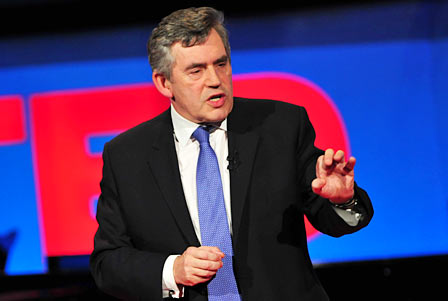
The Substance of Things Not Seen
TEDGlobal 2009 speaker Gordon Brown. Browse the Program Guide >>
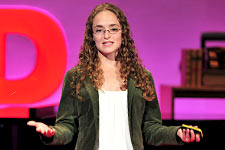
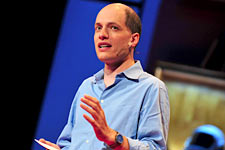
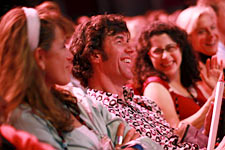
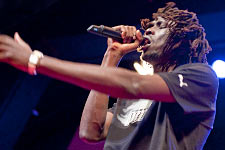
Over the course of four extraordinary days in Oxford, TEDGlobal 2009 shared ideas that moved the world. Here's what the global press said:
By combining the principles of "radical openness" and of "leveraging the power of ideas to change the world," TED is in the process of creating something brand new. I would go so far as to argue that it's creating a new Harvard -- the first new top-prestige education brand in more than 100 years.
Fast Company, September 1, 2010
The physical occurrence of the TED conference is almost the least important thing about it, because now comes the more serious matter of spreading the word. We have all networked, exchanged e-mail addresses, connected. We have been reminded that some of the world’s most brilliant and dynamic thinkers are busying themselves to find new solutions to the world’s awesome problems.
Financial Times, July 23, 2010
The unique thing about TED is that people such as Richard Dawkins, Bill Clinton, philosopher Daniel Dennett and biologist-entrepreneur Craig Venter speak for free and people such as Amazon's Jeff Bezos and Google's Larry Page and Sergey Brin pay to listen.
The Observer, July 4, 2010
It's true, it's addictive learning new things at TED. There's Garik Israelian, a spectroscopist who explains why he believes that we will find signs of extraterrestrial life within 10 years. Then there's Rebecca Saxe's remarkable talk on the RPTJ region of the brain which, if targeted with a magnetic pulse, can actually change people's moral judgments.
"Don't you have the Pentagon calling?" Anderson asks her.
"I do," she replies. "I just don't take their calls." ...
The Observer, July 26, 2009
Yesterday it felt like my IQ increased 20 points via pure intellectual osmosis. It was a long day — 21 people that deserve my full attention over four 90 minute intense sessions, punctuated by coffee and conversation breaks in between.
New Scientist, July 23, 2009
TED’s organizers have mastered the pace and flow of their program, while engendering the crazy collisions of ideas that keep the audience both dazed and energized. An unlikely state of affairs, it’s true. But if you've seen the Incredible Hulk installed in the eye of a needle, you can believe anything.
Design Observer, August 3, 2009
The agenda is as much about socio-cultural and even political issues as it is about technology. And the speakers run the gamut from astronomers, lawyers, and advertising execs to musicians, writers, and politicians . . . Astronomer Andrea Ghez talked about black holes. Nano-scale sculptor Williard Wigan showed the amazing tiny works of art he makes that fit on the head of a pin or inside the eye of a needle. And stunt man Steve Truglia pitched his scheme to jump to the earth from the edge of space, at 120,000 feet. All in all, an esoteric and wild mix.
Business Week, July 22, 2009
Beyond the hyperbole, what TED does is simple. It fills a hall with clever people and pours clever ideas into their heads in 18-minute chunks for four days. It’s the intellectual equivalent of a foie gras production line. If the speakers are good enough, which by and large they are, it is little wonder the TEDsters seem a little awe-struck and reeling.”
The Times, July 18, 2009
TED succeeds in part because participants are encouraged to talk about the unexpected. The title of this year's UK conference was 'The substance of things not seen'. Thus the advertising guru Rory Sutherland's dissection of how Kemal Atatürk, the first president of modern Turkey, sought to prohibit the public use of the veil not by banning it, but by insisting that it be worn by all prostitutes. And thus the activist Evgeny Morozov's discussion of the 'spinternet' — ways in which the Russian and Chinese governments subtly disseminate propaganda using a supposedly open medium. And so on.
Nature, July 29, 2009
TED does this so that millions can gain a better understanding of the biggest issues facing the world and a desire to help create a better future. Core to this goal is a belief that there is no greater force for changing the world than a powerful idea.
The Irish Times, July 23, 2009
The talks were delivered in the Oxford Playhouse, and I kept thinking “This is my last attempt to get anyone to listen. If I can’t put my ideas across to this lively, open-minded young audience, I may as well throw in the sponge and take up flower arranging.”
Elaine Morgan in WalesOnline, July 31, 2009
Highlights from Twitter:
- TED is like drinking from five fire hoses. And it's only Wednesday. Rebecca Saxe, neuroscientist, had a fascinating talk on the mind. -- @beckyblanton
- You know you're at #TED when mathematicians get cheers on stage. :) -- @christinelu
- Q 4 Henry Markram (TEDG-S5): How long before we can upload our brains & thus live forever? And will we be Mac, PC or Open source? -- @bizlike
- Chris Anderson asks physicist David Deutsch how the whole parallel universe thing is going. -- @shanehegarty
- we are deep "in the shadows" tough stuff this morning at TED; organized crime, terrorism, oil, and other bad things. Painful. -- @Idit
- I'm developing an even greater respect for architects. They are id'ing the massive problems AND creative solutions. -- @Alli7on
- And the crowd goes wild. Incredible story about hope and invention in Africa from William Kamkwamba. -- @frogdesign
- #TED and PM Gordon Brown: what we see unlocks what we cannot see: the invisible ties and bonds that bring us together as a human community -- @kokoe2
